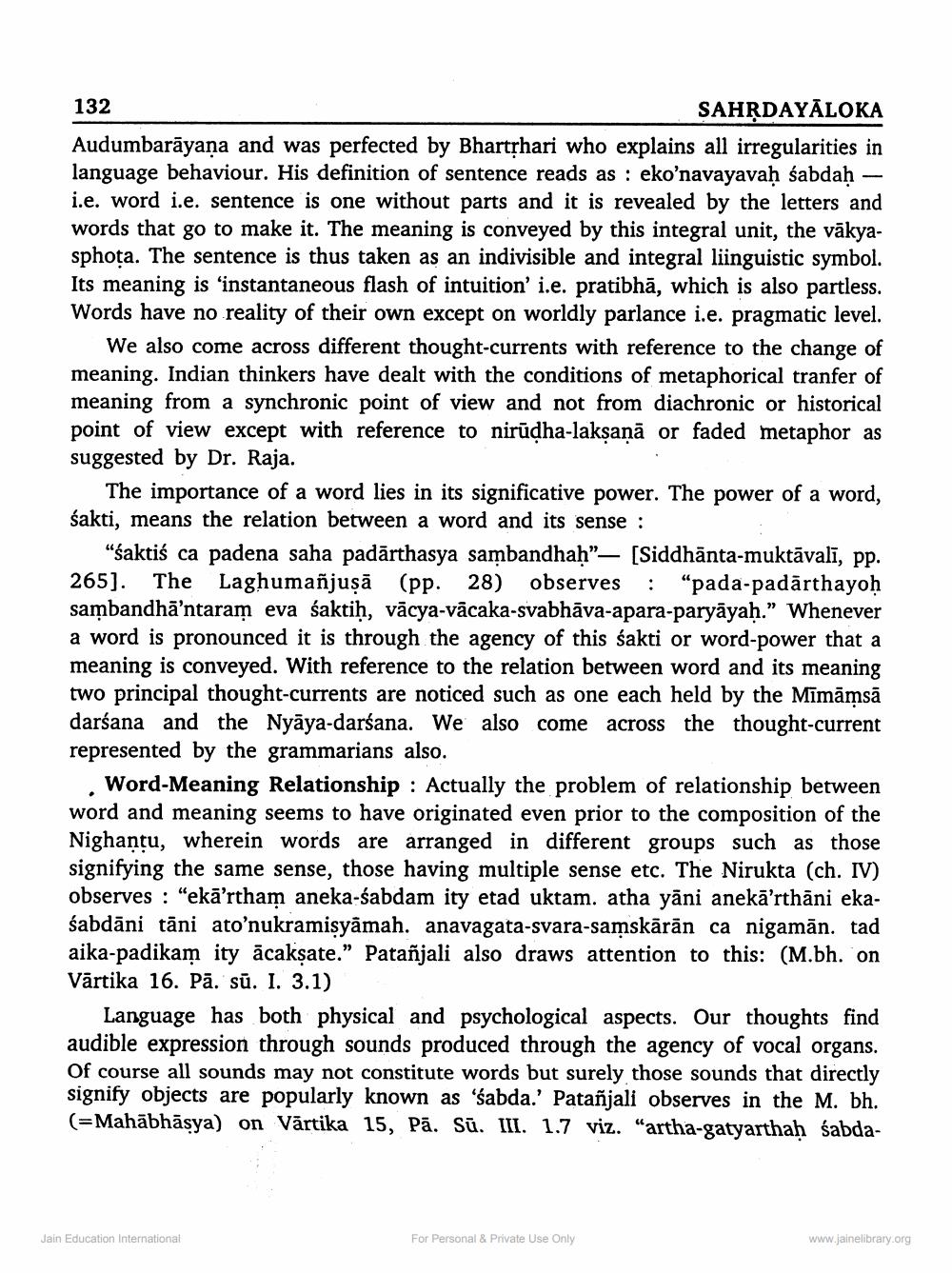________________
132
SAHRDAYĀLOKA Audumbarāyana and was perfected by Bharthari who explains all irregularities in language behaviour. His definition of sentence reads as : eko’navayavaḥ śabdah - i.e. word i.e. sentence is one without parts and it is revealed by the letters and words that go to make it. The meaning is conveyed by this integral unit, the vākyasphota. The sentence is thus taken as an indivisible and integral liinguistic symbol. Its meaning is 'instantaneous flash of intuition' i.e. pratibhā, which is also partless. Words have no reality of their own except on worldly parlance i.e. pragmatic level.
We also come across different thought-currents with reference to the change of meaning. Indian thinkers have dealt with the conditions of metaphorical tranfer of meaning from a synchronic point of view and not from diachronic or historical point of view except with reference to nirūdha-lakṣaṇā or faded metaphor as suggested by Dr. Raja.
The importance of a word lies in its significative power. The power of a word, śakti, means the relation between a word and its sense :
“saktiś ca padena saha padārthasya sambandhah"- (Siddhānta-muktāvalī, pp. 265). The Laghumañjusā (pp. 28) observes : “pada-padārthayoh sambandhā'ntaram eva Śaktiḥ, vācya-vācaka-svabhāva-apara-paryāyah.” Whenever a word is pronounced it is through the agency of this sakti or word-power that a meaning is conveyed. With reference to the relation between word and its meaning two principal thought-currents are noticed such as one each held by the Mīmāmsā darśana and the Nyāya-darśana. We also come across the thought-current represented by the grammarians also.
. Word-Meaning Relationship : Actually the problem of relationship between word and meaning seems to have originated even prior to the composition of the Nighantu, wherein words are arranged in different groups such as those signifying the same sense, those having multiple sense etc. The Nirukta (ch. IV) observes : "ekā'rtham aneka-śabdam ity etad uktam. atha yāni anekā’rthāni ekaśabdāni tāni ato'nukramisyāmah. anavagata-svara-samskārān ca nigamān. tad aika-padikam ity ācaksate.” Patañjali also draws attention to this: (M.bh. on Vārtika 16. Pā. sū. I. 3.1)
Language has both physical and psychological aspects. Our thoughts find audible expression through sounds produced through the agency of vocal organs. Of course all sounds may not constitute words but surely those sounds that directly signify objects are popularly known as 'sabda.' Patañjali observes in the M. bh. (=Mahābhāsya) on Vārtika 15, Pā. Sū. III. 1.7 viz. "artha-gatyarthah sabda
Jain Education International
For Personal & Private Use Only
www.jainelibrary.org




